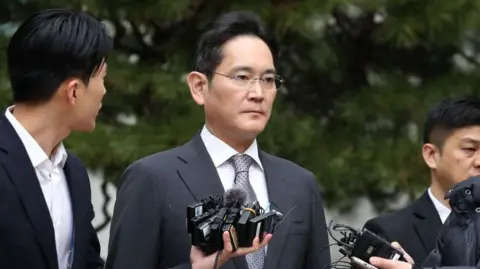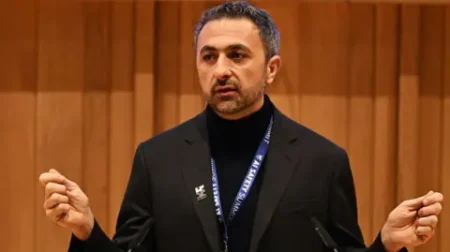In a significant legal victory, Lee Jae-yong, the prominent leader of Samsung, has been exonerated from all fraud charges by South Korea’s highest court. This decisive ruling brings to an end a protracted legal struggle that has lasted almost a decade. The Supreme Court of South Korea confirmed a not guilty verdict, previously rendered in two separate trials, thus sealing Lee’s fate in what has been one of the most scrutinized corporate cases in recent years.
Lee Jae-yong, the grandson of Samsung’s esteemed founder and acting head since 2014, faced allegations tied to a controversial merger that occurred in 2015 between two of Samsung’s subsidiaries. The accusations centered around the use of stock manipulation and accounting fraud as a means to consolidate control over the tech conglomerate. As Samsung’s leader during this pivotal period, the charges against Lee, unfortunately, cast a shadow over the company’s image and its enduring legacy in the competitive electronics market.
The verdict was delivered after extensive legal proceedings, during which the South Korean judiciary scrutinized the merger between Samsung C&T and Samsung Biologics, which had a reported value of approximately $8 billion (£5.97 billion). Following the court’s assertions, Samsung’s legal team expressed appreciation for the ruling, emphasizing that it confirmed the legality of both the merger and the associated accounting practices. “Today, the Supreme Court has clearly confirmed through its final ruling that the merger… was lawful,” stated Samsung’s lawyers, underscoring their gratitude for a judgment that followed five years of trial intricacies.
Interestingly, the backdrop of this case lies within a larger context of corporate governance issues that plague South Korea’s economy, particularly involving its family-run conglomerates known as chaebols. The Samsung case has been emblematic of the broader scrutiny facing these enterprises, which are notorious for their complex webs of intercompany dealings and their significant influence over the nation’s economy.
The complexities surrounding Lee’s situation were heightened by familial circumstances when his father, Lee Kun-hee, suffered a heart attack, leaving him incapacitated in 2014. This incident thrust Lee Jae-yong into a leadership role at Samsung precisely at a time of mounting tension and legal challenges. Initially, the district court found Lee not guilty of all charges, only for prosecutors to appeal the ruling in the High Court. Lee’s repeated vindications underline both the strength of his defense and the challenges inherent in prosecuting high-profile corporate figures.
Despite the favorable ruling, Lee’s legal battles have not occurred in isolation; they coincide with broader difficulties faced by Samsung, including fierce market competition and subpar stock performance. The tech giant, while still one of the world’s leading electronics manufacturers, has had to navigate turbulent waters in recent years, striving to maintain its market position amid evolving consumer preferences and technological advancements.
As Samsung moves forward from this chapter, the resolution of Lee Jae-yong’s legal issues allows the company to focus on its core business operations and strategic initiatives. The outcome is, therefore, not only a personal victory for Lee but also a potential turning point for Samsung as it endeavors to reclaim its footing in an increasingly competitive landscape. With the court’s decision reaffirming the legitimacy of its past actions, Samsung may now pursue new directions in its business strategy with a renewed sense of stability and purpose. The implications of this ruling extend beyond Lee and Samsung; they may redefine investor confidence in corporate governance within South Korea and establish precedence for similar cases in the future.










